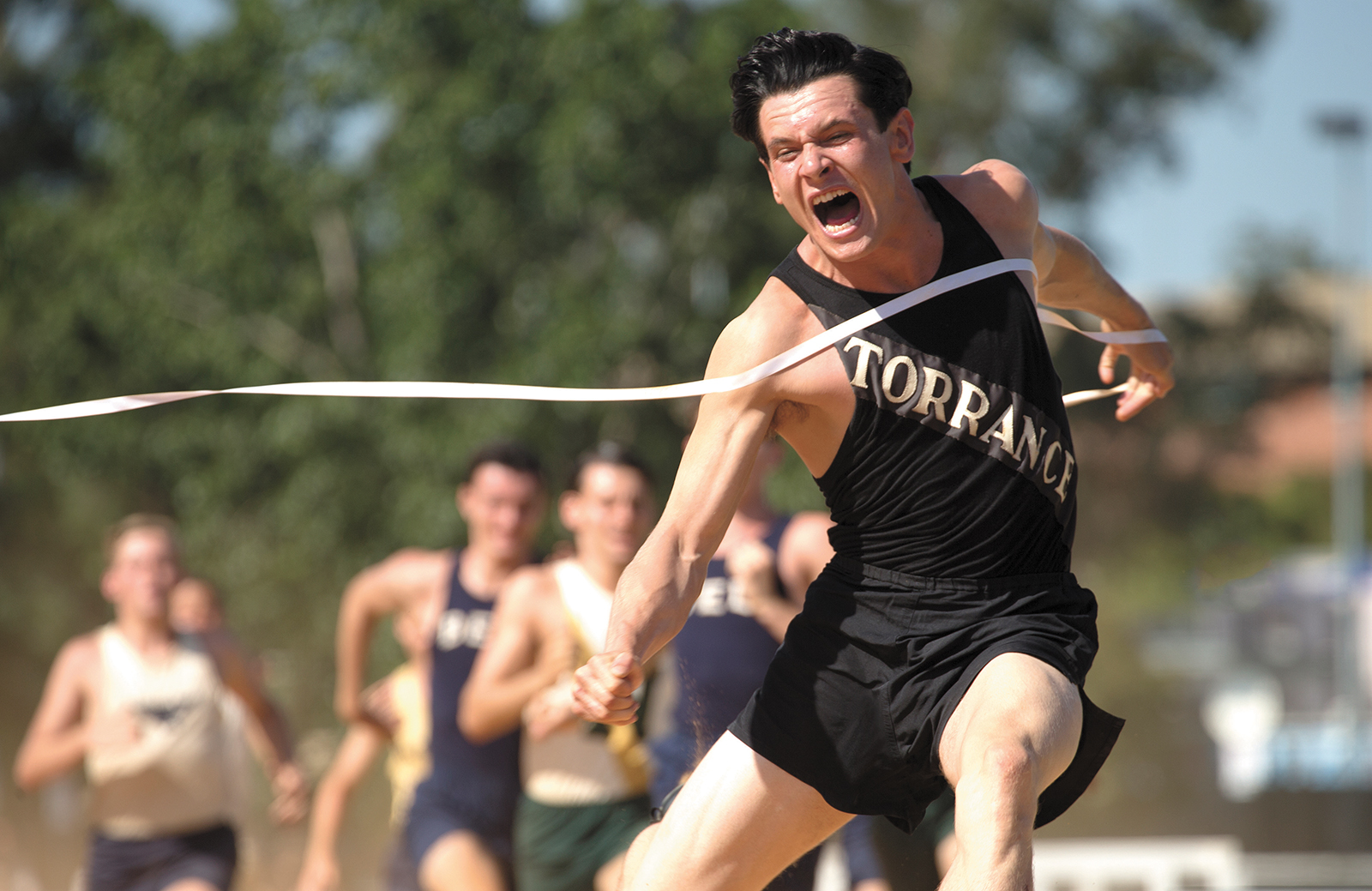Hollywood loves a winner, and the holiday movie season is when the industry most depends on tales of uplift, inspiration, and overcoming. Summer is for caped superheroes, but December’s Oscar derby brings out the champions in mortal form and ordinary attire. Flesh and blood take precedence over magical powers; humanity again prevails over the forces of darkness.
Which, necessarily, brings us back to World War II. Two of the season’s most Oscar-hyped releases harken back to this nation’s (and Britain’s) biggest triumph of the past century. Angelina Jolie’s Unbroken relates the true-life adventures of athlete and aviator Louis Zamperini, who survived a crash landing and a brutal Japanese POW camp. Produced by Americans but cast with Brits, The Imitation Game is yet another WWII biopic, this time about the eccentric gay English mathematician Alan Turing, who cracked the Germans’ Enigma code—thereby saving countless lives and decisively shortening the course of the war.
This week we review those wartime tales, along with the Stephen Sondheim musical adaptation Into the Woods, Tim Burton’s painter biopic Big Eyes, and a doc about Glen Campbell succumbing to Alzheimer’s—dignity intact, of course.
Still in theaters, too, are notable releases from earlier this year, from Birdman to Boyhood and beyond. Then there are the prestige pictures yet to reach Seattle: Joaquin Phoenix as hippie gumshoe in Inherent Vice ; Selma reprising the civil-rights struggle of Martin Luther King; and Bradley Cooper as anguished war vet in American Sniper.
All these movies share thematic touchstones. All hew to a familiar, triumphalist formula. All share certain standard, awards-friendly elements that we help you identify here:
Sensitive Hero’s Noble Flaw Turing is both gay and somewhere on the Asperger’s spectrum. Stephen Hawking (Eddie Redmayne) gradually succumbs to ALS in The Theory of Everything. Cooper’s soldier suffers from PTSD. Michael Keaton’s over-the-hill actor in Birdman is possibly schizophrenic. Meek painter Margaret Keane (Amy Adams) in Big Eyes defers to her overbearing, sexist husband Walter (Christoph Waltz), allowing him to claim credit for her saucer-eyed waif paintings. Preteen Zamperini is a sneak thief. Chris Rock’s comic has a drinking problem in Top Five, and Phoenix’s Doc Sportello is a pothead. Yet in all cases, these handicaps and setbacks cannot break their spirit!
Nemesis Against Whom Virtue Is Contrasted Old cinematic standbys Hitler (Imitation Game) and Sauron (Hobbit 3 . . . plus all those LOTR movies) are joined by: Meryl Streep’s singing witch in Into the Woods. Walter Keane, the liar and untalented fraud in Big Eyes. Steve Carell’s John E. du Pont in Foxcatcher, the bird-beaked patron of the rasslin’ Schultz brothers (Mark Ruffalo and Channing Tatum). Iraqi terrorists in American Sniper. The Golden Fang conspiracy in Inherent Vice. This evil will not stand!
The Epic Journey Hilary Swank carting mad frontierswomen eastward across the prairie in The Homesman. Bilbo’s long march in Hobbit 3. Zamperini being shot down over the Pacific, surviving 47 days in a raft, enduring torture, and finally returning home. Reese Witherspoon in Wild, where the journey is the entire plot. Richard Linklater’s 12-year project Boyhood: a temporal journey to young manhood. Remember: Distance plus time equals a likely Oscar nomination.
Moment of Weakness, Madness, or Betrayal Thorin’s gold-lust in Hobbit 3. Heroin-addicted Reese having a three-way in an alley. Rock’s comic backsliding into alcoholism (and agreeing to marry a reality TV star). Emily Blunt as the Baker’s Wife succumbing to Prince Charming in Into the Woods. Ben Affleck and Rosamund Pike’s entire horrible marriage in Gone Girl. Keaton trying to mount a Broadway show based on depressing Raymond Carver stories. (Also, he’s probably delusional about possessing those superpowers. Probably.) Tommy Lee Jones, in The Homesman, trying to abandon his insane cargo. Zamperini briefly considering doing a radio propaganda broadcast for the Japanese. In all these cases, a hesitation-and-recovery moment inevitably signals the pivot to Act III triumph.
Silver Cloud/Dark Lining Paradox Turing commits suicide—but only in the postscript!—after being persecuted for his sexuality. Mark Schultz (Tatum) has his life ruined (even while gaining his freedom). Bilbo finally returns to the shire, where Frodo and superior LOTR movies will eclipse him. Cooper’s sharpshooter wins numerous medals, but is murdered by a fellow gun nut in the end. Having completed her journey, Reese’s heroine realizes that she’ll never accomplish anything so grand again; marriage and kids can only be a letdown. In Selma, after MLK overcoming, etc., the whole assassination thing. Affleck’s lunk is cleared of murder charges, but he’s still married to Pike’s psycho bitch. For Margaret, there’s the unavoidable fact that her paintings are kitsch. And in every instance, the Oscar apparatus must ignore such dark truths.
Character-Defining Epiphany
Reese’s hiker lets go of her dead mother, finally, on the PCT. Rock goes back to what he’s best at, stand-up comedy. Cinderella (Anna Kendrick) and company give up on enchantment in Into the Woods, accepting the limits of real life and all its messy problems. Bilbo gives the dwarves’ magical Arkenstone rock to the elven army, betraying Thorin to avert needless bloodshed. Doc realizes that his ex Shasta (Katherine Waterston) no longer loves him, but helps her anyway. Zamperini accepts divine providence while trapped in a sinking plane. If Hawking’s body is ruined, he still has mind. And even the grumpy odd-duck Turing learns to cooperate with the inferior intellects of his team: That’s how wars and Academy Awards are won!
bmiller@seattleweekly.com








